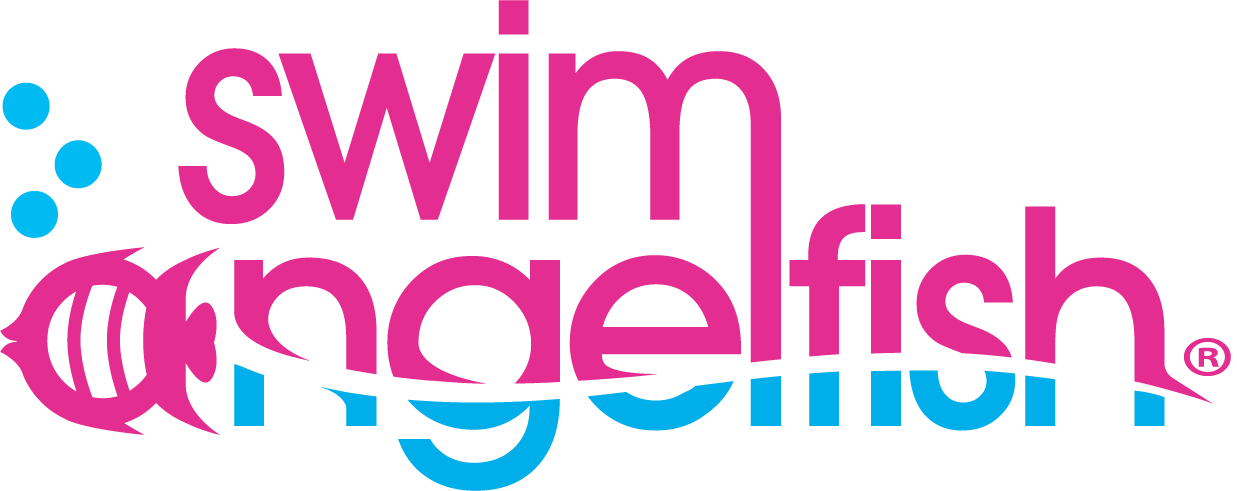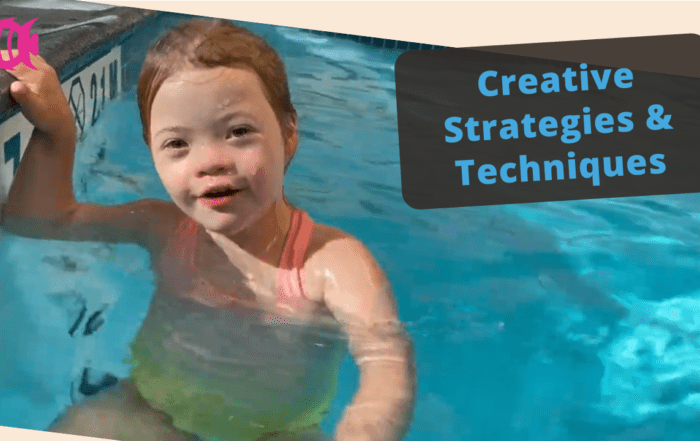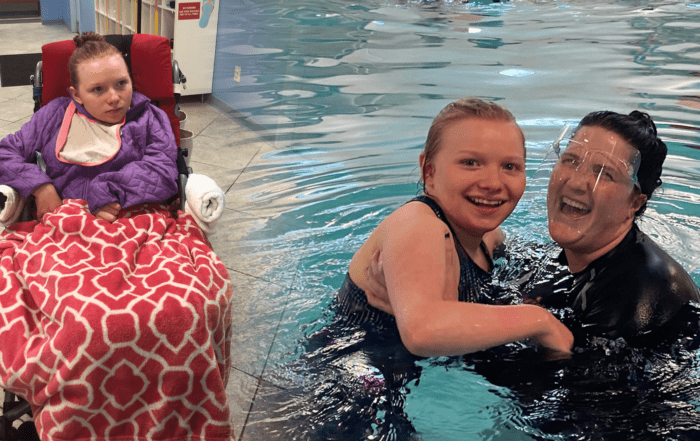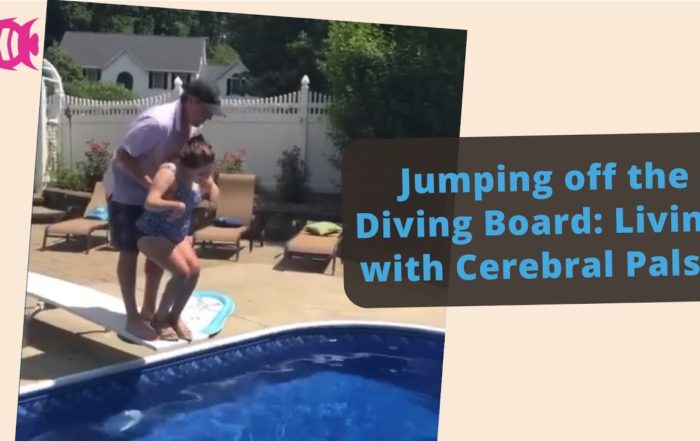Discover how important life skills can be nurtured, as we explore the multiple benefits of choosing aquatic therapy or swim lessons for individuals with Cerebral Palsy.
Neurodevelopmental disorders such as Cerebral Palsy can have an impact on movement, balance, and posture. This can make it challenging to participate in traditional therapy and activities. However, aquatic therapy and swim lessons offer a unique and effective way to address the difficulties that people with autism experience.
What is Cerebral Palsy?
Cerebral Palsy (CP) is a group of neurological disorders caused by an injury to the brain in utero, at birth, or before 2 years of age. There are many different presentations of Cerebral Palsy that result in a wide range of both neurological and physical symptoms.
Statistics Relating to Water Safety for Children With Cerebral Palsy
How Adaptive Swim Lessons and Aquatic Therapy Contribute to Water Safety
Part of our mission at Swim Angelfish is to help improve water safety for children of all abilities and create a supportive, understanding environment where water safety skills can flourish. Aquatic therapy can help satiate a child’s sensory needs as well as improve their strength, coordination, and motor planning so that they are able to function safely in an aquatic environment. Swim lessons additionally help children develop a crucial sense of awareness for water safety and independent movement, while fostering a positive and functional relationship between the child and the water.
Swimming provides a multitude of benefits for children with Cerebral Palsy. For these children, there aren’t many opportunities for both cardiovascular fitness and strength training that are challenging, fun, and potentially independent.
Learning to swim provides a lifelong opportunity for fitness in an environment that supports their bodies! Swimming also provides an opportunity for pain relief and relaxation. Many children with CP struggle with pain on a daily basis as a result of spasticity and posturing. Swimming provides an opportunity for active movement which not only lubricates joints, but it releases endorphins to help these children feel good! Swimming additionally provides immense social benefits. Many children with CP are unable to interact with peers on land from an eye level position. Being in the water levels the playing field and allows kids to just be kids, together!
Benefits of Swim Lessons for Cerebral Palsy
There are so many incredible benefits of aquatic therapy for children with Cerebral Palsy. Being in the water allows children with Cerebral Palsy to move through greater ranges of motion because they are not encumbered by the weight of gravity, and they can use the natural properties of water to assist and resist movement. This results in improved strength gains, increased active and passive range of motion, improved respiration, and improved neuromuscular control. Being in the water also helps improve cardiovascular conditioning because the hydrostatic pressure causes the heart to pump more blood per beat. This helps effectively oxygenate the body’s musculoskeletal system! The water also offers an opportunity for buoyancy assisted gait training. Many children with CP who struggle with land-based ambulation are able to experience the benefits of upright movement when walking in water. Not only is this an incredible way to work on balance, postural control, and a variety of other physical benefits, but walking in the water can provide immense emotional benefits for children who use mobility aids on land.
Benefits of Aquatic Therapy for Cerebral Palsy
Our Swim Whisperers® Adaptive Aquatics Training Program is the only Adaptive Aquatics Training program that uses a therapeutic approach to assess, identify, and overcome the roadblocks that are present in children with special needs while learning to swim.
Here are some great tips when working with individuals who have Cerebral Palsy:
For many people living with Cerebral Palsy, swimming is a source of happiness and independence. Read about Emily who achieved her dream of jumping off the diving board and see what could be possible for your swimmer.
We can help you find a qualified instructor or aquatic therapist to help your child with Cerebral Palsy become safer and more independent in the water.
We have highly skilled instructors certified in the Swim Whisperers® program who will work with your child to identify and address any underlying obstacles that they are experiencing with learning to swim.
We also have licensed aquatic physical, occupational and recreational therapists who will use a fun, innovative multi-sensory approach to reach specific therapy goals. We offer private, semi-private and small group sessions across multiple locations in CT, MA, NH and NY.
